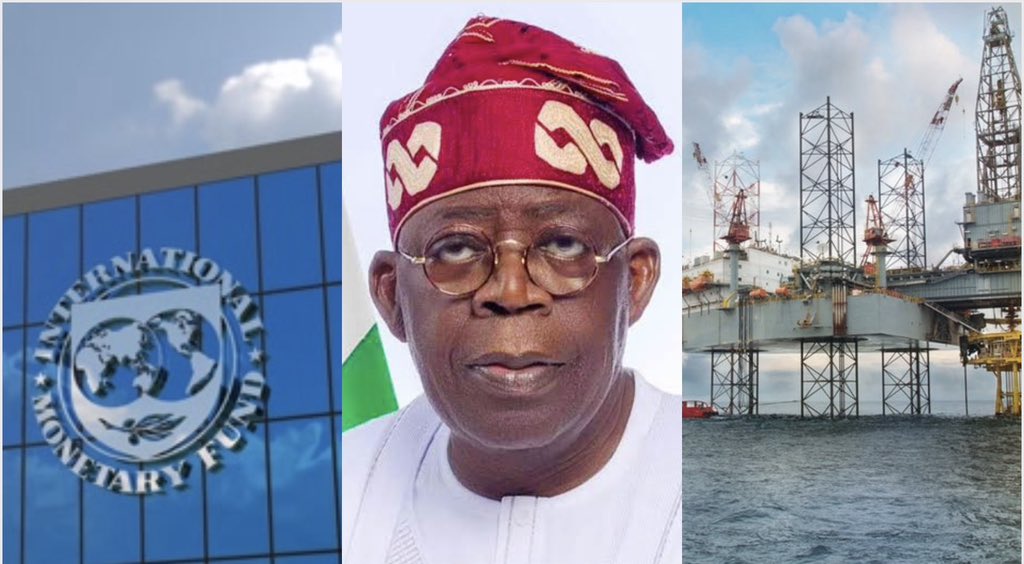

The International Monetary Fund (IMF) has once again raised concerns about the health of Nigeria’s economy, warning that the country is edging closer to a fiscal cliff if urgent reforms are not implemented. In its latest Article IV consultation, the global financial institution cautioned that Nigeria’s growing debt burden, falling oil revenue, and overly optimistic government revenue projections could combine to trigger a financial storm in the coming years.
According to the IMF, Nigeria’s 2025 budget faces substantial risks that could derail the country’s fragile economic recovery. The Fund’s assessment points to several worrying trends—declining oil production, sustained low oil prices, and a widening fiscal deficit projected to hit 4.7% of the nation’s Gross Domestic Product (GDP). With oil still accounting for over half of government revenues and nearly 90% of export earnings, the IMF’s warning underscores a long-standing vulnerability that Nigeria has struggled to shake off for decades: overdependence on crude oil.
The IMF report paints a sobering picture of Africa’s largest economy. Despite ongoing efforts to diversify, Nigeria’s fiscal position remains precarious, weighed down by rising debt servicing costs that are crowding out critical spending on infrastructure, education, and healthcare. The Fund noted that debt servicing already consumes over 90% of federal government revenues, leaving little room for social and capital expenditure. This imbalance, if left unchecked, could trap the country in a cycle of borrowing to fund recurrent expenses while economic productivity stagnates.
The IMF’s message is clear: Nigeria cannot continue to spend beyond its means. The government’s revenue assumptions, which hinge on optimistic projections for oil prices and production levels, are increasingly detached from reality. In recent years, Nigeria’s oil output has fallen well below the OPEC quota due to persistent issues such as pipeline vandalism, oil theft, underinvestment in the sector, and regulatory uncertainties that have discouraged foreign investment. Coupled with volatile global oil prices, the IMF warns that these challenges could leave a gaping hole in Nigeria’s fiscal plan for 2025.
Beyond the oil sector, the IMF also highlighted concerns about Nigeria’s rising domestic debt, which has ballooned as the government turns increasingly to the Central Bank of Nigeria (CBN) and local financial institutions to finance its budget shortfalls. This heavy domestic borrowing, according to the Fund, risks crowding out private sector credit and fueling inflationary pressures. Inflation in Nigeria already sits at a multi-decade high, driven by rising food prices, the removal of fuel subsidies, and the devaluation of the naira. The IMF cautioned that if fiscal discipline is not restored, inflation could become even more entrenched, eroding consumer purchasing power and further widening inequality.
Nigeria’s government, for its part, has defended its fiscal strategy, insisting that current policies are aimed at stimulating growth and tackling long-term structural issues. The administration has prioritized infrastructure investment, social welfare programs, and measures to boost non-oil revenue through improved tax collection and expansion of the digital economy. However, the IMF notes that these efforts have not yet translated into significant fiscal relief, as non-oil revenue growth remains sluggish and heavily reliant on short-term measures rather than deep structural reforms.
The Fund’s warning is not without precedent. For years, economists have sounded alarms over Nigeria’s unsustainable fiscal trajectory. The IMF’s latest report adds fresh urgency to the debate, calling for sweeping reforms to broaden the tax base, reduce wasteful subsidies, and strengthen fiscal transparency. It also urged the government to implement tighter monetary policies to rein in inflation and stabilize the exchange rate, which has been under pressure following multiple devaluations of the naira in recent months.
The IMF also stressed the importance of rebuilding investor confidence, which has waned amid policy inconsistencies and foreign exchange shortages. The Fund advised that a clear and credible policy framework—especially around exchange rate management—would be crucial in attracting foreign direct investment and boosting non-oil exports. Without such measures, Nigeria risks alienating investors who could otherwise help spur industrial growth and job creation.
The warning comes at a time when ordinary Nigerians are already feeling the pinch of economic hardship. The removal of fuel subsidies and the floating of the naira—while aimed at reducing fiscal pressure—have led to higher transportation and food costs, pushing millions deeper into poverty. The IMF acknowledged the short-term pain of these reforms but emphasized that without sustained fiscal consolidation and social protection measures, the long-term benefits could be lost. The Fund encouraged the government to prioritize targeted welfare programs to cushion the most vulnerable segments of society from the harsh effects of economic adjustments.
In response to the IMF’s assessment, Nigerian policymakers have expressed mixed reactions. Some see the warning as a wake-up call that must be heeded before it’s too late, while others argue that the Fund’s prescriptions may not fully align with Nigeria’s unique economic realities. Critics within the country often view the IMF’s recommendations as overly orthodox, focusing too heavily on austerity measures that could stifle growth. Nonetheless, few dispute the underlying concerns: Nigeria’s debt is rising fast, revenues are lagging behind projections, and the economic foundation remains worryingly narrow.
Experts also warn that political considerations could complicate the implementation of the tough reforms needed to stabilize the economy. With the 2025 fiscal year already underway, there are concerns that the government may be reluctant to take politically unpopular decisions such as cutting public sector wages, removing remaining subsidies, or enforcing stricter tax compliance among powerful interest groups. The IMF’s report, however, insists that postponing these hard choices will only make future adjustments more painful.
For many Nigerians, the IMF’s warning reinforces what they already know—the economy is walking a tightrope. Rising food prices, unemployment, and currency volatility have eroded public confidence, and without a clear path toward fiscal sustainability, the situation could deteriorate further. The IMF’s tone may be stern, but its message is ultimately one of caution and opportunity: Nigeria still has the potential to reverse its fortunes, but doing so will require bold leadership, transparent governance, and an unrelenting focus on diversification.
As global oil markets remain uncertain and domestic challenges persist, the question for Nigeria is not whether it can survive another fiscal storm—but whether it can finally break free from the cycle of boom and bust that has defined its economic history. The IMF’s warning is a reminder that time may be running out for Africa’s largest economy to get its house in order before the next crisis hits.


